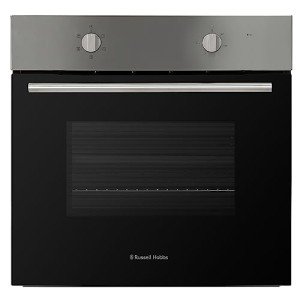Inbuilt Ovens 10 Things I'd Like To Have Known Earlier
Understanding Inbuilt Ovens: The Perfect Kitchen Appliance for Modern Cooking
In the ever-evolving world of kitchen appliances, inbuilt ovens have become a preferred choice for house owners and cooking enthusiasts alike. extra resources but likewise work as an aesthetically pleasing addition to contemporary cooking areas. This post explores the numerous elements of inbuilt ovens, discussing their types, features, benefits, and FAQs.
What is an Inbuilt Oven?
An inbuilt oven, also understood as a built-in oven, is a cooking appliance that is created to be integrated into the cabinetry of a kitchen. Unlike freestanding ovens, inbuilt ovens are set into the wall or under the counter top, supplying a streamlined and contemporary look. This integration permits an easier cooking experience and better kitchen organization.
Kinds Of Inbuilt Ovens
When picking an inbuilt oven, numerous types cater to various cooking choices and requirements. The following are the most typical types:
Single Inbuilt Ovens:
- These are standalone units offering one cooking chamber. They are ideal for smaller kitchen areas or people who prepare less regularly.
Double Inbuilt Ovens:
- Featuring 2 independent cooking chambers, double ovens permit for cooking numerous dishes at various temperature levels at the same time, making them perfect for families or those who amuse often.
Compact Inbuilt Ovens:
- Smaller in size, compact ovens fit neatly into tighter areas and can be integrated into kitchen islands or lower cabinets.
Steam Ovens:
- Using steam as a cooking approach, these ovens maintain the nutrients and wetness in food, offering healthier cooking alternatives.
Convection Ovens:
- Equipped with a fan and exhaust system, convection ovens flow hot air for even cooking, making them efficient for baking and roasting.
Wall Ovens:
- Wall ovens are specifically designed to be built into a wall, saving space while enhancing accessibility.
Microwave Ovens:
- While not traditionally classified as an oven, a built-in microwave can be incorporated into the cabinets for quick cooking and reheating.
Table 1: Comparison of Inbuilt Oven Types
Oven Type
Cooking Chambers
Ideal Use
Advantages
Single Oven
1
Small homes
Space-efficient, simpler to set up
Double Oven
2
Large families or frequent cooks
Prepare multiple meals at the same time, more versatile
Compact Oven
1
Little kitchen areas
Saves area, helpful for quick meals
Steam Oven
1
Health-conscious cooking
Keeps nutrients, perfect for vegetables and fish
Convection Oven
1
Baking and roasting
Even cooking, minimizes cooking time
Wall Oven
1
Space-saving design
Easy access, modern visual
Built-in Microwave
1
Quick heating and cooking
Practical, conserves counter space
Key Features of Inbuilt Ovens
Inbuilt ovens come geared up with various features that boost the cooking experience. Below are some key functions worth considering:
- Self-Cleaning Options: Many inbuilt ovens provide self-cleaning cycles that make maintenance much easier.
- Digital Controls: Precise temperature settings and programmable cooking times permit greater cooking control.
- Smart Technology: Some designs offer connectivity to smart device apps for remote operation and monitoring.
- Several Cooking Modes: Various cooking modes, such as baking, broiling, and roasting, boost versatility.
- Security Features: Included sensors and timers guarantee that the oven runs securely, preventing overcooking and getting too hot.
- Energy Efficiency: Inbuilt ovens normally consume less energy compared to their freestanding counterparts.
Benefits of Inbuilt Ovens
Inbuilt ovens bring a plethora of benefits to modern cooking areas:
Aesthetic Appeal:
- Their smooth style can perfectly blend into kitchen cabinetry, raising the general appearance of the area.
Space-Saving:
- Built into walls or other furnishings, these ovens can release up floor space, making kitchens feel bigger and more organized.
Organized Cooking Space:
- With installation choices, they can be placed at an ergonomic height, making it easier to keep track of cooking without flexing over.
Versatile Cooking Options:
- Many inbuilt ovens included different cooking functions, offering home cooks the capability to explore different dishes.
Potential for Increased Home Value:
- A well-designed kitchen with inbuilt appliances can considerably boost the appeal and worth of a home.
FAQs About Inbuilt Ovens
Q: Can I set up an inbuilt oven myself?A: While some homeowners may feel comfy undertaking the installation, it is generally suggested to hire an expert for exact fitting and electrical requirements.
Q: Do inbuilt ovens included warranties?A: Most manufacturers provide service warranties ranging from one to a number of years, depending on the brand and model. Always examine the guarantee conditions before purchasing.
Q: Are inbuilt ovens more expensive than freestanding ovens?A: Inbuilt ovens can be more pricey due to their design and installation requirements, however the price typically shows the included features and aesthetic appeal.
Q: What power supply do inbuilt ovens need?A: Most inbuilt ovens require a dedicated electrical connection, often 230V – 240V. Seek advice from the manufacturer's specs for the exact requirements.
Q: How do I keep an inbuilt oven?A: Regular cleansing, following the manufacturer's instructions for self-cleaning choices, and regular look for wear and tear can help preserve the oven's condition.
Inbuilt ovens represent a best blend of performance and design for the modern-day kitchen. With numerous types and functions offered, these appliances not just enhance the cooking experience however likewise contribute to a cleaner, more organized space. By comprehending the choices offered and their intrinsic advantages, property owners can make informed decisions to raise their cooking journeys. As cooking areas continue to progress, purchasing a premium inbuilt oven can cause higher benefit, effectiveness, and overall pleasure in cooking.
